Kind Hearts and Coronets (1949)
“The D’Ascoynes had not only wronged my mother; they were the obstacle between me and everything I wanted.”
|
Synopsis: |
|
Genres, Themes, Actors, and Directors:
Response to Peary’s Review: Despite his discomfort, Peary ultimately lauds the film as “beautifully played”, calling out its “absolutely exquisite script” with “sophisticated dialogue [that] reminds [him] of Oscar Wilde”. [“While I never admired Edith as much as when I was with Sibella, I never longed for Sibella as much as when I was with Edith”, our protagonist drolly intones at one point.] Peary points out that part of what adds “to the amusement is that while the educated characters engage in smart conversation, or Price’s silver-tongued narration hints at his egocentricity, absolutely silly events occur” — such as a victim who’s “blown up in the background”, or “lovers [who] plunge over a waterfall”. He notes that his “only complaint” is what he considers to be “an overly convenient (for the writers) ending that saves Price from having to make a difficult decision”, but I disagree; I find it a suitably open-ended finale to a story with an undeniably challenging moral compass. It’s been pointed out that Guinness’s tour de force work as no less than eight supporting characters (including, in a hilarious bit, one woman) often overshadows Price’s perfectly controlled performance in the lead role; each actor ultimately deserves a different type of kudos, one no less than the other. Joan Greenwood, meanwhile, is suitably sibilant and cat-like as Price’s kindred spirit — an ambitious young woman who takes the first opportunity she sees for social ascension, but immediately regrets her decision. The cinematography (by Douglas Slocombe), sets, and direction (by Robert Hamer) all contribute to the success of the movie — one which film fanatics (and their loved ones) can safely return to time and again when seeking a generous helping of deliciously dark humor. Note: As far as I know, this was the first comedy to feature one actor playing so many different parts, thus paving the way for similar work by Peter Sellers, Jerry Lewis, and Eddie Murphy, among others. Redeeming Qualities and Moments:
Must See? Categories
(Listed in 1001 Movies You Must See Before You Die) Links: |
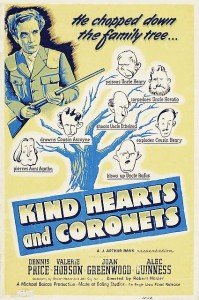
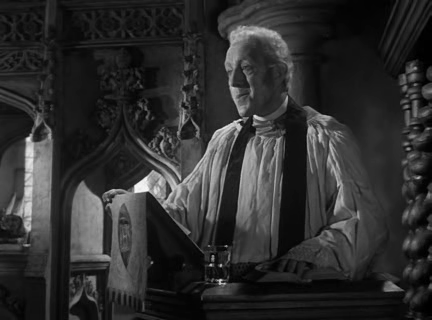
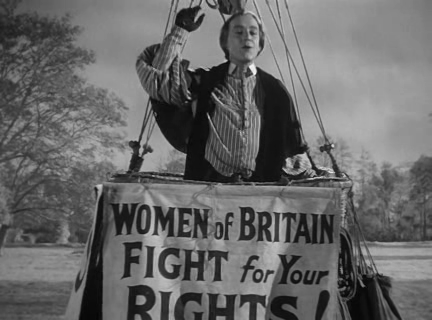
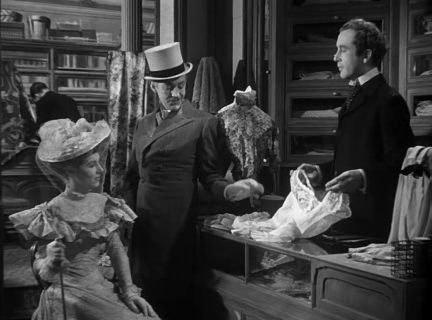
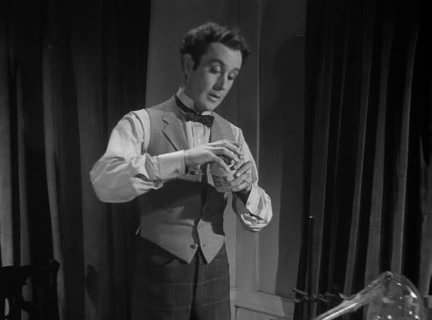
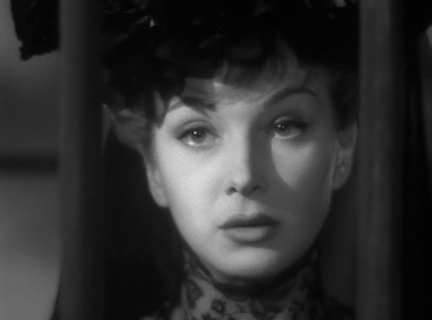
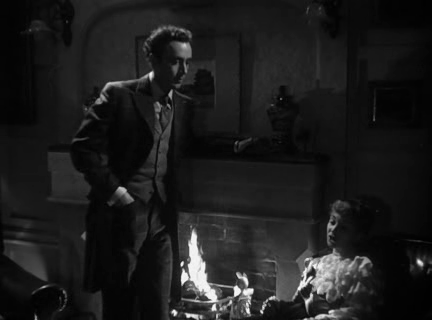
One thought on “Kind Hearts and Coronets (1949)”
A no-brainer must – and a personal favorite.
Indeed, this is a film I return to from time to time, and take immense pleasure in doing so. With a film of this sort (not that there is a film quite of this sort – but in terms of black comedy), ‘KH&C’ really is as good as it gets.
Unlike Peary’s take – which apparently focuses some on the actual killings and how we’ll possibly react to or feel about them – I tend to look at the whole film as a worldview played out in the story. It would appear that the source material takes a dim view of mankind in general; the world is seen as divided between those who have (and are usually monstrous because of it) and those who have not. And more than that: although there are a few genuinely kind souls depicted here, most of the characters (whether they are privileged or not) are not likable; the range including deceitful, vain, puffed-up, etc. And even if it’s not a matter of whether some are likable or not, they’re still flawed (i.e., dim-witted, proud, etc.).
Adding to the rich complexity of the script and those who people it is the following: Price tells us in his narration that he is “not a callous man” – which is largely true: notice how he dotes on his mother, for example. In fact, notice how adorable Price’s character is in the early part of the film. The scheme he eventually undertakes seems so out-of-character that one might suspect he has an imbalance of motherlove which causes him to turn psychotic. What other word but ‘psychotic’ applies when his plan involves tunnel-vision and he kills without respect of person (as long as they’re in the targeted group)? (What makes his psychosis all the more eerie is how engaging he remains to just about everyone throughout; one of the rare exceptions arising in a scene which suddenly throws the whole film into intense drama.)
Beautifully produced and filmed, ‘KH&C’ is a film which slowly becomes more savage (and savagely funny) as it proceeds. It is blessed with a marvelously literate and witty screenplay. (One of the joys of a revisit rests with quips you may not pick up on the first time around.) And it is played to perfection by the entire cast. Even if it is Price’s show (more than Guinness’, truth be told – as riveting as he is), no one can really be singled out. These are the kinds of roles actors say they would “kill for” and the best have been found to play them. Director and co-writer Robert Hamer has fashioned from start to finish with – as one of Guinness’ characters would say – “great care”. And great precision.
The film is simply exquisite – a genuine gem!